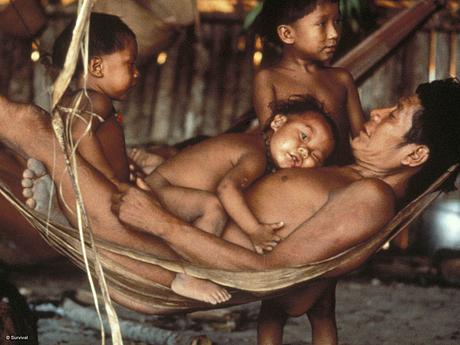Yanomami blood controversy
The researchers, led by geneticist James Neel and anthropologist Napoleon Chagnon, intended the samples to be used for biomedical research, but they took the blood without the informed consent of the Yanomami.
This unparalleled violation of scientific ethics sparked a fierce international debate between geneticists, anthropologists and Yanomami Indians which has lasted over forty years.
Davi Kopenawa, Yanomami shaman and spokesman, said that the scientists did not specify how the blood would be used.
 © Victor Englebert/Survival
© Victor Englebert/Survival
He stated, ‘Nobody imagined that the blood would be kept in their freezers… We were all very sad when we realized that our blood and blood of our deceased ancestors was being preserved… Science is not a god who knows what is best for everybody. It is we Yanomami who know whether or not research is good for our people’.
The Yanomami have spent years urging that the blood be returned to them, because for them the preservation of the blood of a deceased person is unthinkable.
When a Yanomami Indian dies, their body is cremated and no physical remains or possessions of the dead are kept. This is the Yanomami’s way of departing the world and separating the world of the living from the world of the dead.
Liquid error: internal
May 2010 saw a landmark turning point when it was announced that the blood samples would be returned to the Amazon.
Five research centers which had possessed the frozen Yanomami blood for decades agreed to a proposal by the Brazilian government for the blood to be returned to the Yanomami.
Davi Kopenawa added that the Yanomami would put the blood in the river upon its return to the Amazon: ‘We are going to return the blood of our ancestors to the waters… because our Creator, Omame, found his wife, our mother, in the river’.
Sign up to the mailing list
Our amazing network of supporters and activists have played a pivotal role in everything we’ve achieved over the past 50 years. Sign up now for updates and actions.
